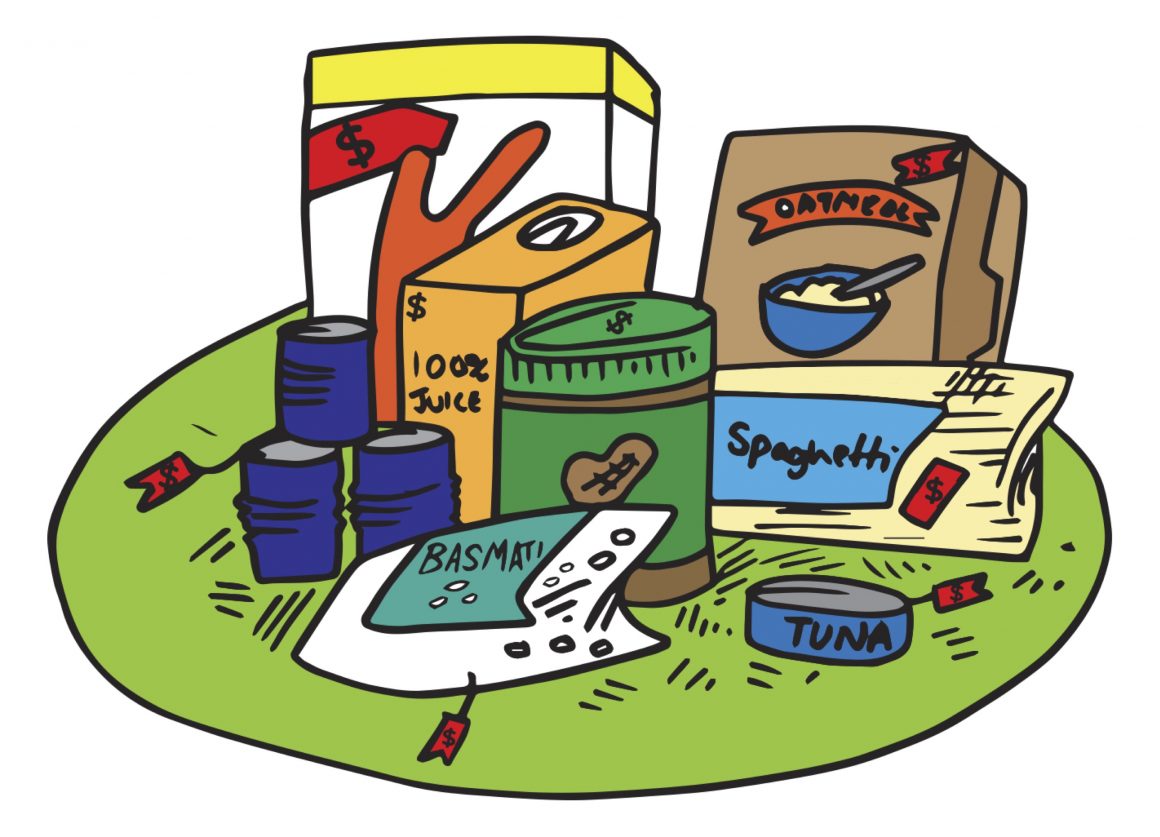
Food bank needs more funding allocation from the SU
The University of Calgary Students’ Union Campus Food Bank fell $30,000 short in 2016. After their Spring Food Drive last week, the food bank raised $2,300 in monetary donations and 107 food items.
According to the food bank coordinators, its usage has doubled over the past two years. The food bank gave out 312 hampers and fed 631 people in 2015–16. This increase in food bank usage is consistent across various Canadian post-secondary campuses.
The SU food bank generally relies on donations to maintain its services. And in an economic downturn, it is expected that the food bank will suffer losses in donations while seeing increased demand.
“We have a lot more people that are struggling financially. That means they’re going to [either] need to use the food bank or cut down on their charitable donations for the year, both of which affect us pretty heavily,” SU food bank co-coordinator Amy LeBlanc said.
The food bank is an invaluable resource for U of C students. And frankly, a larger portion of our fees should go towards supporting it. While initiatives taken by Volunteer Services — such as last week’s Spring Food Drive — are important, more responsibility should fall on the SU, as well as the university, to support this service.
U of C students pay $32.50 every term to the SU, which is used as operational funding. On top of that, U of C students pay $23 to support other programs offered by the SU. Out of that $23, only 75 cents goes towards Volunteer Services, which manages the food bank. Let that sink in — only 75 cents of student fees directly supports the organization that runs not only the food bank, but other resources including the Q Centre and the Volunteer Tax Program.
It is unacceptable that the food bank — a service integral to many students’ well-being — is not considered a priority in the breakdown and distribution of the fees we pay.
Food security is a pressing issue for students in Canada. According to an article in the Toronto Star, a report called Hungry for Knowledge surveyed 4,500 students across five Canadian campuses and found that 40 per cent of Canadian post-secondary students are food insecure. The survey also found that 49.5 per cent of respondents reported having to sacrifice buying healthy food to pay for other educational expenses.
The survey also indicated that 20.1 per cent of respondents reported that food insecurity impacts their mental health and that 56.4 per cent of Aboriginal students reported experiencing food insecurity.
Food insecurity impacts the most vulnerable students. It is evident that the food bank is one of the services offered by the SU that has the most capacity to make tangible changes in student’s lives. While programs like the student housing website and events like Cinemania are valuable, they do not come close to a program that helped feed 631 people in the past year and has the potential to help even more.
The SU needs to re-evaluate the services it offers to students. An integral program such as the food bank should not be struggling while other low attendance events and barely utilized services remain. This re-evaluation is what many people demand from governments as well as corporations. We must have the same expectations for financial management from the SU.
While increased usage of the food bank is likely related to the economic downturn, the SU and the university should have been better prepared to face this situation. Neither the SU nor the university fully considered the impact the economic downturn or they would have adjusted their services accordingly. This lack of oversight and planning is unacceptable for two institutions that are to be trusted with public and students’ money.
Both the SU and the university must better manage their services and finances to offer what students truly need. Food insecurity is an issue across Canada and the food bank shortfall proves that a reevaluation of the distribution of student fees is essential. Students already pay their share. The SU and the university now need to ensure those fees are properly distributed towards students’ needs and that services important to students are protected.
Tina Shaygan, Gauntlet Editorial Board
